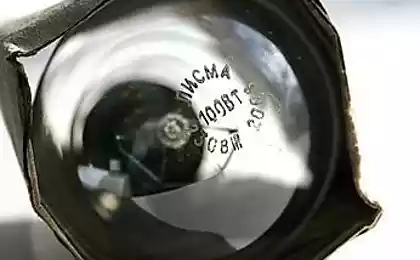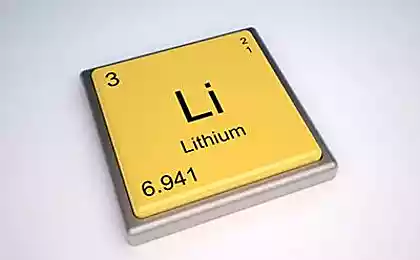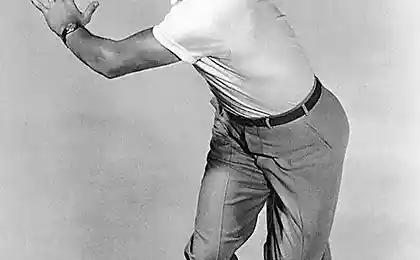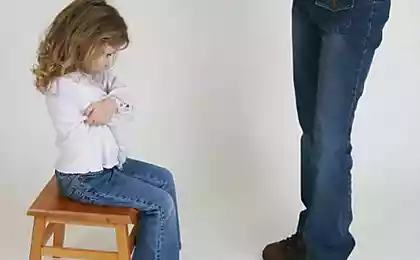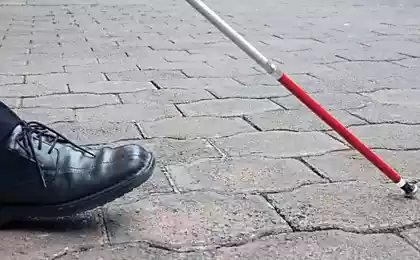398
Insidious particle "NOT": do not, do not touch, do not run!
"Don't do, don't touch, don't run, no no no...". A familiar situation?
Often adults give a lot of guidance: "don't go in the kitchen, don't touch that vase, don't take the scissors", etc., without explaining why not and, most importantly, HOW. Children often violate the prohibitions, the parents get upset, scold, forbid again and everything is back to normal.

A famous anecdote perfectly illustrates this situation. The visitor had lunch in a café, as well as on the table did not have napkins, he thought, than to wipe his mouth. His gaze accidentally stumbles on the words: "Please, curtains mouth not to wipe". "That's the idea!", happily thought the visitor.
In the sequel will tell a story about yourself. When I was about 4 years old, grandma told me to play on the balcony. "Play, only his head between the bars don't stick," said grandma. As you may have guessed, the first thing I did when grandma came out, it stuck his head between the bars. I don't remember exactly how I was saved, but I remember that I sat thus for some time. I remember very well that before my grandmother's words I have in mind was not to push its head between the bars of the balcony. But grandma gave me the idea. And I instantly realized.
"Not" is a tricky particle. It has a tendency to jump out of our consciousness. So, instead of "don't hit, don't push", is a promise: "beat, push", instead of "do Not touch, do not take" — "Touch, take".

Try to be from "not"? Then let's reformulate our bans.
Instead of "do Not go to the fire" you can say, "Be careful, hot."
Instead of "don't touch the scissors" "Scissors sharp, you can hurt, will hurt."
"Do not twist on the swings" — "Sit still, spinning on the swings dangerous."
"Don't shout" "I hear you".
"Don't fight" — "Why did you hit the boy? He was very hurt and sad".
"The most constructive way — too early to warn children about the dangers, nothing forbidden", wrote françoise, Dolto. Abandoning the particle "Not", we do not ban children, but referred to the consequences of their actions, warn of the danger. That is, give them the opportunity to see the consequences of their actions.
There is another reason why it is advisable to refuse from "not". Using "not" is the designation for the ban. However, this prohibition does not show what, how and when to do it. For an adult it is obvious that the words "don't go in the puddle" at the same time mean "go Around the puddle".
What do these words mean for your child? Alas, not the same as for an adult. The child understands that the attack on water is impossible. He feels that he something forbidden, and this prohibition particularly want to violate. But the child does not understand very well what exactly it needs to do. so often the child simply stops in front of the puddle.
Or, for example, the message "do Not spit the bones of the cherries on the table" means to spit bones on the table is impossible. Only. If we say, "Spit the bones on the plate", we give the child information about how to deal with the bones. That is, we form the child's appropriate behavior, helping him to adapt to new environmental conditions.published
Author: Yulia Guseva
P. S. And remember, only by changing their consumption — together we change the world! ©
Join us in Facebook , Vkontakte, Odnoklassniki
Source: vk.com/roditeli_i?w=wall-5608057_1229460
Often adults give a lot of guidance: "don't go in the kitchen, don't touch that vase, don't take the scissors", etc., without explaining why not and, most importantly, HOW. Children often violate the prohibitions, the parents get upset, scold, forbid again and everything is back to normal.

A famous anecdote perfectly illustrates this situation. The visitor had lunch in a café, as well as on the table did not have napkins, he thought, than to wipe his mouth. His gaze accidentally stumbles on the words: "Please, curtains mouth not to wipe". "That's the idea!", happily thought the visitor.
In the sequel will tell a story about yourself. When I was about 4 years old, grandma told me to play on the balcony. "Play, only his head between the bars don't stick," said grandma. As you may have guessed, the first thing I did when grandma came out, it stuck his head between the bars. I don't remember exactly how I was saved, but I remember that I sat thus for some time. I remember very well that before my grandmother's words I have in mind was not to push its head between the bars of the balcony. But grandma gave me the idea. And I instantly realized.
"Not" is a tricky particle. It has a tendency to jump out of our consciousness. So, instead of "don't hit, don't push", is a promise: "beat, push", instead of "do Not touch, do not take" — "Touch, take".

Try to be from "not"? Then let's reformulate our bans.
Instead of "do Not go to the fire" you can say, "Be careful, hot."
Instead of "don't touch the scissors" "Scissors sharp, you can hurt, will hurt."
"Do not twist on the swings" — "Sit still, spinning on the swings dangerous."
"Don't shout" "I hear you".
"Don't fight" — "Why did you hit the boy? He was very hurt and sad".
"The most constructive way — too early to warn children about the dangers, nothing forbidden", wrote françoise, Dolto. Abandoning the particle "Not", we do not ban children, but referred to the consequences of their actions, warn of the danger. That is, give them the opportunity to see the consequences of their actions.
There is another reason why it is advisable to refuse from "not". Using "not" is the designation for the ban. However, this prohibition does not show what, how and when to do it. For an adult it is obvious that the words "don't go in the puddle" at the same time mean "go Around the puddle".
What do these words mean for your child? Alas, not the same as for an adult. The child understands that the attack on water is impossible. He feels that he something forbidden, and this prohibition particularly want to violate. But the child does not understand very well what exactly it needs to do. so often the child simply stops in front of the puddle.
Or, for example, the message "do Not spit the bones of the cherries on the table" means to spit bones on the table is impossible. Only. If we say, "Spit the bones on the plate", we give the child information about how to deal with the bones. That is, we form the child's appropriate behavior, helping him to adapt to new environmental conditions.published
Author: Yulia Guseva
P. S. And remember, only by changing their consumption — together we change the world! ©
Join us in Facebook , Vkontakte, Odnoklassniki
Source: vk.com/roditeli_i?w=wall-5608057_1229460
Dandelion a hundred diseases: from personal experience
7 useful skills that can be learned in a few minutes



